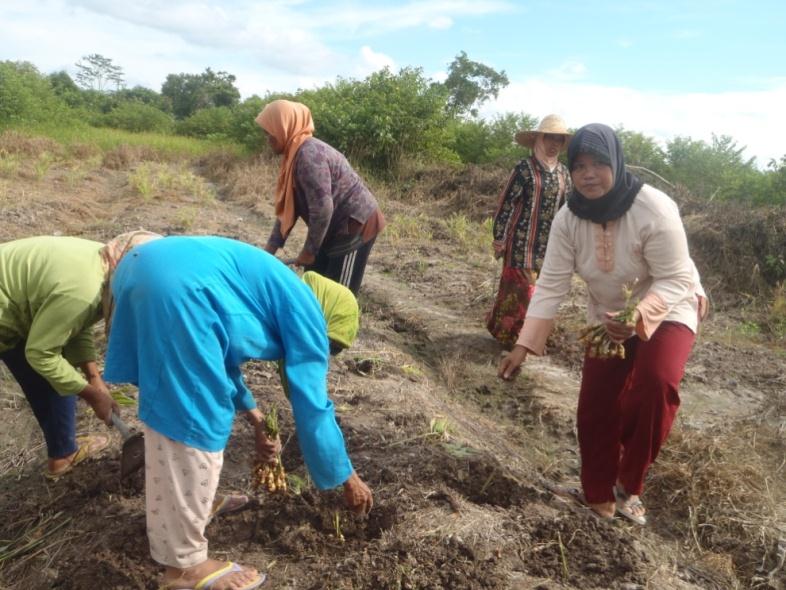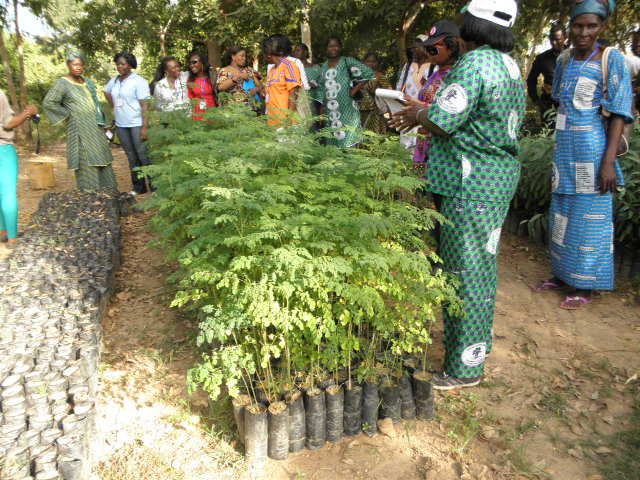WRI and the Government of France produced this brief to build awareness and provide clear examples of how the Open Government Partnership national action plan process could be an effective venue for addressing climate governance.
Topics: Gender
This document outlines the vision and objectives for the 2016 Global Gathering Building a movement on open government for climate action.

By Carolina Tamagnini, Foundation for the Development of Sustainable Policies (FUNDEPS)
Gender issues impact access to information and public participation in sector specific topics such as climate, agriculture, water, and forest governance policies and regulations. Also, achieving sustainable development will only be possible when all people are heard and involved equally. This includes ensuring the effective participation of women, almost half of the world’s population.
In this context, TAI has formed the Gender Working Group with the aim to develop a more comprehensive gender integration strategy. The group will provide new opportunities for joint work and develop strategies for gender mainstreaming for organizational members of TAI.
Based on the responses obtained from a survey of TAI members about gender dimensions of access rights, carried out by the TAI Secretariat, it emerged that there is a strong interest in gender issues and a prevalence of gendered projects. For that reason, the group was created to promote the development of a gender-responsive approach for the diversity of TAI partners. At the moment, the group is led by Olimpia Castillo from Comunicación y Educación Ambiental (México) and Elizabeth Moses from, TAI Secretariat, WRI, with the participation of Carolina Tamagnini from the Foundation for the Development of Sustainable Policies (FUNDEPS, Argentina) and Natalie Elwell, WRI’s Senior Gender Advisor.
The strategy of the Gender Working Group, rooted in the results of the survey, is focused on four objectives: catalyze transformative change in policy and practice; building alliances; making the case through research and evidence based advocacy; and building capacity. The group will achieve these objectives through the following strategies:
- Knowledge and information sharing: to facilitate and promote learning across the network, sharing resources and documents useful for partners such as best practice case studies or TAI project outcomes and methodologies that incorporate gender mainstreaming. TAI will also organize webinars and workshops on tools and approaches that expand the gender-sensitive perspective in our work.
- Fundraising Support: to strengthen the TAI network and have better incorporation of a gendered perspective, TAI will help identify and secure fundraising resources. This will be carried out by identifying and sharing funder organizations and opportunities and facilitating the development of joint proposals across partners.
- Support research and evidence based advocacy: to ensure that gender issues are appropriately reflected in international and national policies, as well as in key events and forums TAI will carry out activities, such as supporting development and incorporation of a gendered disaggregated data into TAI’s current tools and research methodologies; identify and prioritize collaboration opportunities to use partners work; and support the incorporation in gender perspective in the development and implementation of policies.
The Gender Working Group is an opportunity to advance more gender-sensitive work and provide tools for producing gender disaggregated data, strategies to advocate for policies with gender perspective, or the strengthening of equitable engagement process working with communities.
Since TAI is a global network of a wide variety of national and local partners, we are calling all interested organizations from all TAI regions to join. The diversity that the platform can provide turns the group into a unique forum for dialogue and exchange of ideas around gender and environmental democracy, as well as a platform to develop robust gender-based strategies.
In the Sustainable Development Goals, the 5th includes that stated goal to “Achieve gender equality and empower all women and girls.” This goal aims at empowering women and promoting gender equality because is crucial to accelerating sustainable development. Ending all forms of discrimination against women and girls is not only a basic human right, but it also has a multiplier effect across all other development areas. So is ensuring that the knowledge, skills, and abilities of both men and women can help inform meaningful environmental decision making. So, if you are already working with women or incorporating a gender perspective, join us! If not, join and learn with us how to work in a gender-responsive way!

By Stephanie Ratté (March 12, 2015)
Roughly 70 percent of women in Cameroon live in rural areas, relying at least in part on natural resources like forests for their livelihoods. However, women often face particular challenges in accessing the forests they need. Differences in the ways men and women understand and use forests mean natural resource policies can result in significant gender-differentiated impacts that oftentimes put women at a disadvantage. Women’s lack of secure access to forests can lead to a variety of inequities, including limited decision-making power; more vulnerability for women who are unmarried, divorced, or widowed; and greater likelihood that forest conservation schemes like REDD+ (Reducing Emissions from Deforestation and Forest Degradation) will not benefit women and men equally. As new programs seek to tackle deforestation in Cameroon, it’s imperative that these initiatives are not blind to gender differences in forest use and access. Cécile Ndjebet, a partner of WRI’s Governance of Forests Initiative, is a leading voice on gender and forest governance, both in Cameroon and internationally. Ndjebet serves as the director of civil society group Cameroon Ecology, coordinates the National Civil Society Organization Platform on REDD and Climate Change and heads the African Women’s Network for Community Management of Forests (Réseau des Femmes Africaines pour la Gestion Communautaire des Forêts or REFACOF). I recently caught up with her to talk about the challenges rural, forest-dependent women face in Cameroon, as well as solutions for overcoming these problems.
1. Why is it important for women to have secure access to forests in Cameroon? When women have clear and secure rights to forest land and resources, they are more likely to be able to access credit and technical assistance, manage resources sustainably, and are less dependent on marriage for security. Research on the link between gender and natural resource management demonstrates the critical and positive role that women can play in achieving environmental and development goals. In Nepal and India, for example, studies demonstrate that greater participation of women in forest management and decision-making processes at the community level are associated with better forest conservation.
2. What are the main challenges you face in your work? One is building the capacity of the government and other groups to recognize the importance of gender equality. I recently attended a workshop in Brazzaville and realized that people rarely understand why gender is important to consider in forest and natural resource management. Awareness is being raised now because of initiatives like REDD+. But we also need the political will of governments, greater capacity of civil society organizations and more resources for effective advocacy.
3. How can REDD+ help bring greater gender equity to natural resource governance in Cameroon? The government of Cameroon began developing its national REDD+ strategy in June of 2014 in order guide the implementation of incentives for the sustainable management of forests and the conservation and enhancement of forest carbon stocks. Cameroon Ecology is playing a key role. So far, the government is open to our participation, and we are working to gather real information from communities and villages so that the contributions of rural women and men can be inserted in the national REDD+ strategy. We also need to ensure that REDD+ programs implement safeguards to avoid creating or exacerbating gender inequalities. What I see in REDD+ is that it is a good opportunity. We don’t yet know exactly what we will get with carbon offsets, but the REDD+ process has created a more inclusive space for promoting the equitable management of resources. I always say to the communities: If REDD+ cannot bring the scale of resources we hope for, at least it can help strengthen participation and improve natural resource laws and regulations for rural men and women in Cameroon.
4. How is your organization working to build capacity to address gender-related challenges? We are conducting trainings with other NGOs on gender and REDD+. We have just finished three training sessions to help men and women understand how gender is important to natural resource management, especially in relation to climate change and REDD+. We have also developed a policy brief on women’s participation in Cameroon’s REDD+ experience. In Cameroon, we are also coordinating the National Civil Society Organization Platform on REDD and Climate Change, a venue where I have been able to influence how women participate in decision making. The platform was established in 2011 to enhance collaboration on REDD+ and climate change issues between civil society in Cameroon and the government. We now have women represented at local, district and national levels of the platform’s governance. We also succeeded in getting gender focal points in at least eight ministries dealing with natural resource management. But there is still progress that must be made. The important point is to ensure that women are not just present in meetings, but that they can actually influence decision-making processes. The work we’ve done is a starting point, but we need to increase awareness, capacity and resources. By strengthening women’s networks and partnering with men so they can be advocates for gender equality, we can make it clear that inequitable situations are not favorable for any kind of development.
5. How does access to information factor in? Information and communication are challenges. It can be difficult to reach rural communities in Cameroon because many of these areas lack electricity. In rural areas, most people—especially women—understand the local language, rather than French or English. If you want to be effective, you have to translate information into the local language, so we recognize that this can be a significant limiting factor in our work. Capacity to understand forest governance and gender issues is another barrier. We need to produce documents that are nontechnical, affordable and accessible. Within the REDD platform, we are building partnerships with rural radio stations and media at the district level. The advantage is that most of the villages do have access to radio. Next year, we intend to expand partnerships with rural radio programs to publish and transmit information to a larger audience.